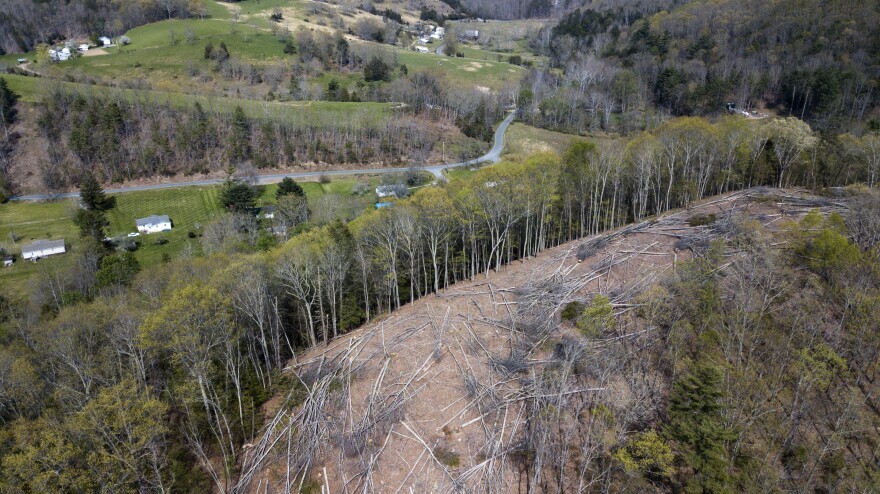The Mountain Valley Pipeline has encountered a number of setbacks from courts and regulators throughout the permitting process. Environmentalists are worried Congress may soon take action to weaken that process
Most of the Mountain Valley Pipeline has already been constructed. But many permits are still needed to connect the natural gas pipeline from West Virginia to Virginia. And environmentalists are worried that the deal making now happening in Washington with climate change legislation might open the door to efforts to weaken the permitting process.
David Sligh at Wild Virginia says getting permits to cross streams and wetlands should be difficult.
"Folks who want to build these things, they have a right to propose whatever they want," Sligh says. "But sometimes their interest in making a profit is in direct conflict with what's best for the public as a whole."
Manufacturers say wind power and solar power won't work for factories. Brett Vassey at the Virginia Manufacturers Association says weather-dependent energy is difficult for industries that require a lot of power all day and all night.
"We have to have a consistent load all the time. That requires us then to have either backup or supplements, and right now energy storage is not really there," Vassey explains. "Battery backup for a factory is not really practical."
Changes to the permitting process are not currently on the table with the climate control legislation now under consideration. But environmentalists are concerned that the deal making needed to secure enough votes for it might lead to future legislation that weakens public participation and oversight.
This report, provided by Virginia Public Radio, was made possible with support from the Virginia Education Association.


